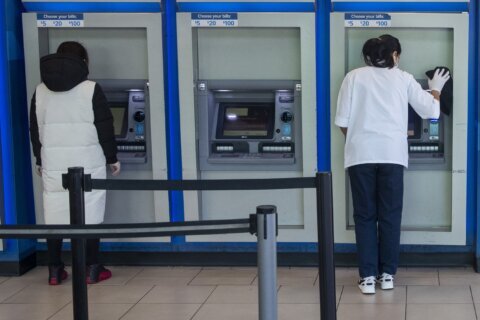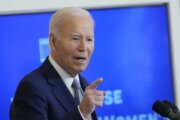RALEIGH, N.C. (AP) — Robert F. Kennedy Jr. lost twice Thursday in his battles to stay on the presidential ballot in some states and get off of it in others.
North Carolina’s elections board refused to take him off that state’s ballot, with a majority saying it was too late in the process for him to withdraw. Meanwhile, an appeals court in New York rejected Kennedy’s request to get back on the ballot there, upholding a judge’s decision to disqualify him for having lied on elections paperwork about where he lived.
On Friday, Kennedy suspended his independent campaign and endorsed Republican Donald Trump. He has since sought to withdraw his name from the ballot in states where the presidential race is expected to be close, including North Carolina.
Simultaneously, he has tried to stay on the ballot in states like New York where his presence is unlikely to make a difference in the battle between Trump and Vice President Kamala Harris.
A midlevel appeals court on Thursday affirmed a ruling from a trial court judge who said Kennedy falsely claimed to live in New York on his nominating petitions, despite actually living in California.
Evidence presented at a short trial, the court said, showed that while Kennedy was a New York resident for decades — his father represented the state in the U.S. Senate — he has lived in the Los Angeles area since 2014, when he married “Curb Your Enthusiasm” actor Cheryl Hines. Kennedy had listed a home address in the tony suburb of Katonah, New York, but that was actually the home of a friend.
“This is not a situation where Kennedy erroneously listed a former residence in the nominating petition, but rather, Kennedy listed an address at which the record evidence reflects he has never resided,” the panel of judges wrote.
Kennedy’s New York attorney, Jim Walden, said he would appeal.
In North Carolina, the elections board’s three Democrats outvoted two Republicans to reject a request made by the recently certified We The People party of North Carolina to remove Kennedy and his running mate, Nicole Shanahan, from the party’s ballot line.
State board officials said that they had previously received a request signed by Kennedy to withdraw, but since he was the nominee of the party, it was the job of We The People to formally seek the removal.
The Democratic majority said making the change would be impractical, given that state law directs the first absentee ballots for the Nov. 5 elections be mailed to requesters starting Sept. 6. North Carolina is the first state in the nation to send fall election ballots.
By late Thursday, 67 of the state’s 100 counties will have received their printed absentee-by-mail ballots, , board Executive Director Karen Brinson Bell said. The chief printing vendor for the majority of the state’s counties has printed over 1.7 million ballots. Ballot replacement and mail processing would take roughly two weeks, and the reprinting would cost counties using this vendor alone several hundred thousand dollars combined, she added.
“When we talk about the printing a ballot we are not talking about … pressing ‘copy’ on a Xerox machine. This is a much more complex and layered process,” Brinson Bell told the board.
The two Republican board members suggested the state could have generated new ballots.
“I think we’ve got the time and the means to remove these candidates from the ballot if we exercise our discretion to do so,” Republican member Kevin Lewis said.
Board Chair Alan Hirsch, a Democrat, called the decision not to remove Kennedy “the fairest outcome under these circumstances.”
The state Democratic Party unsuccessfully fought We The People’s certification request before the board and later in state court.
___
Associated Press writer Michael Hill contributed from Albany, New York.
Copyright © 2024 The Associated Press. All rights reserved. This material may not be published, broadcast, written or redistributed.







